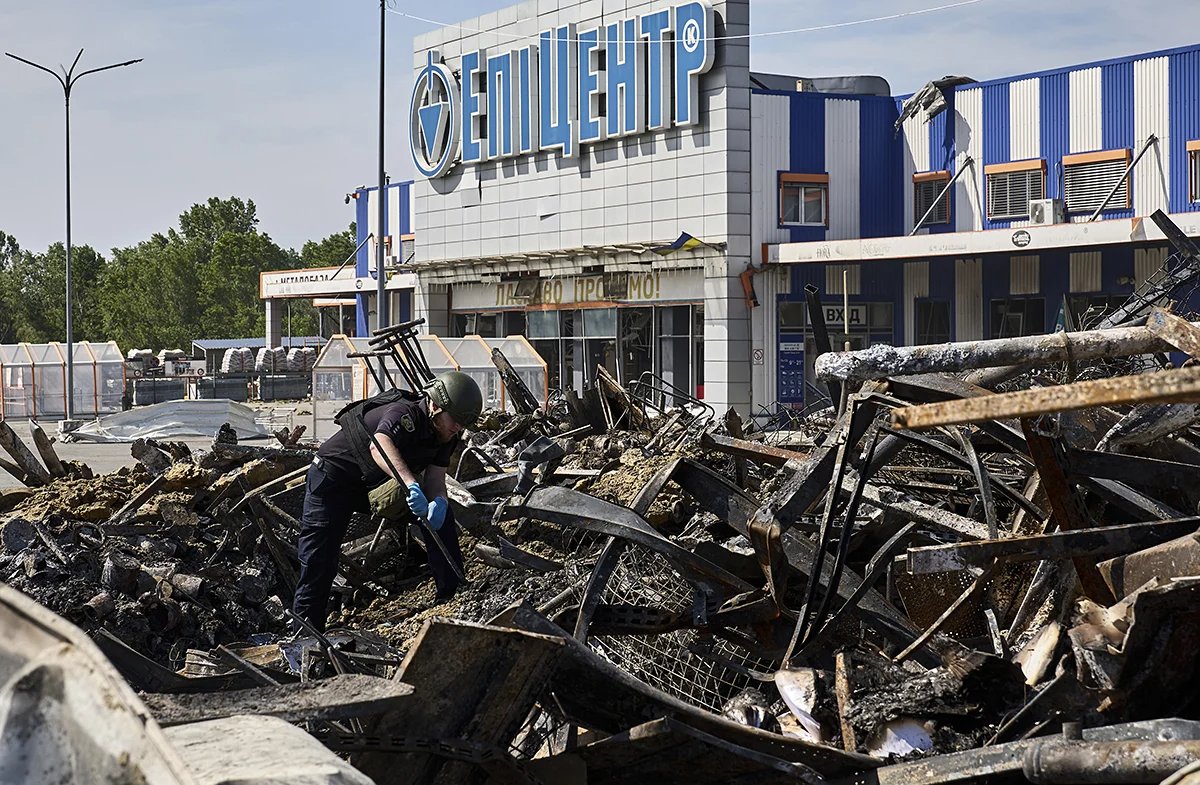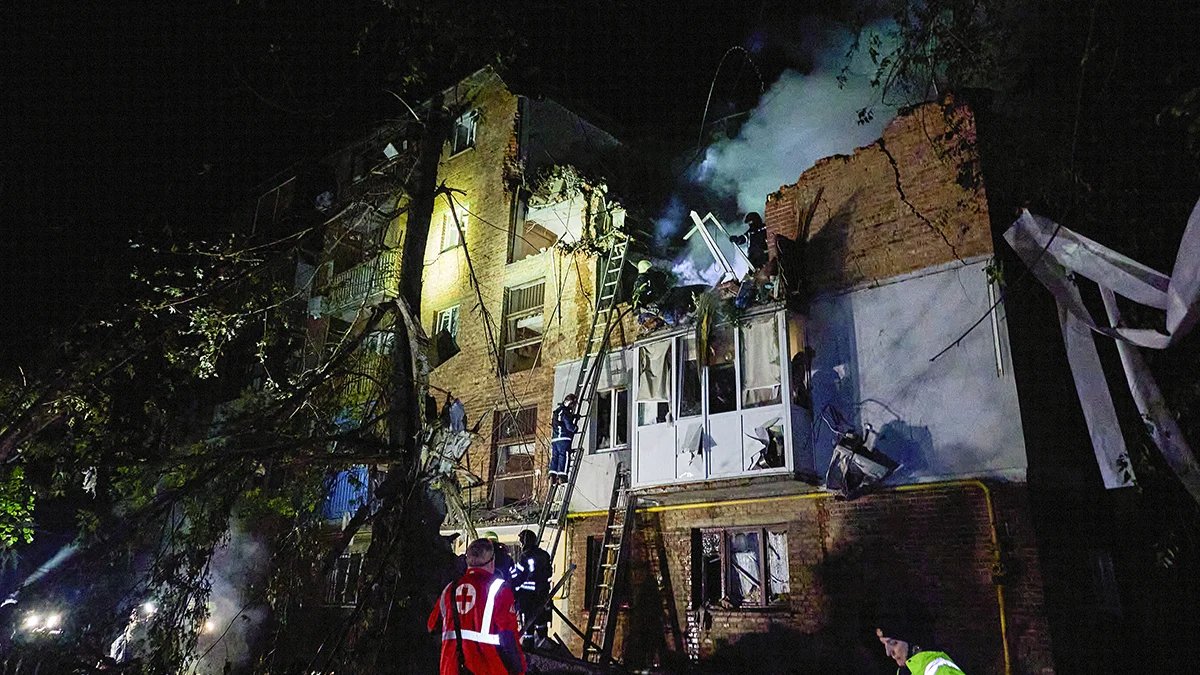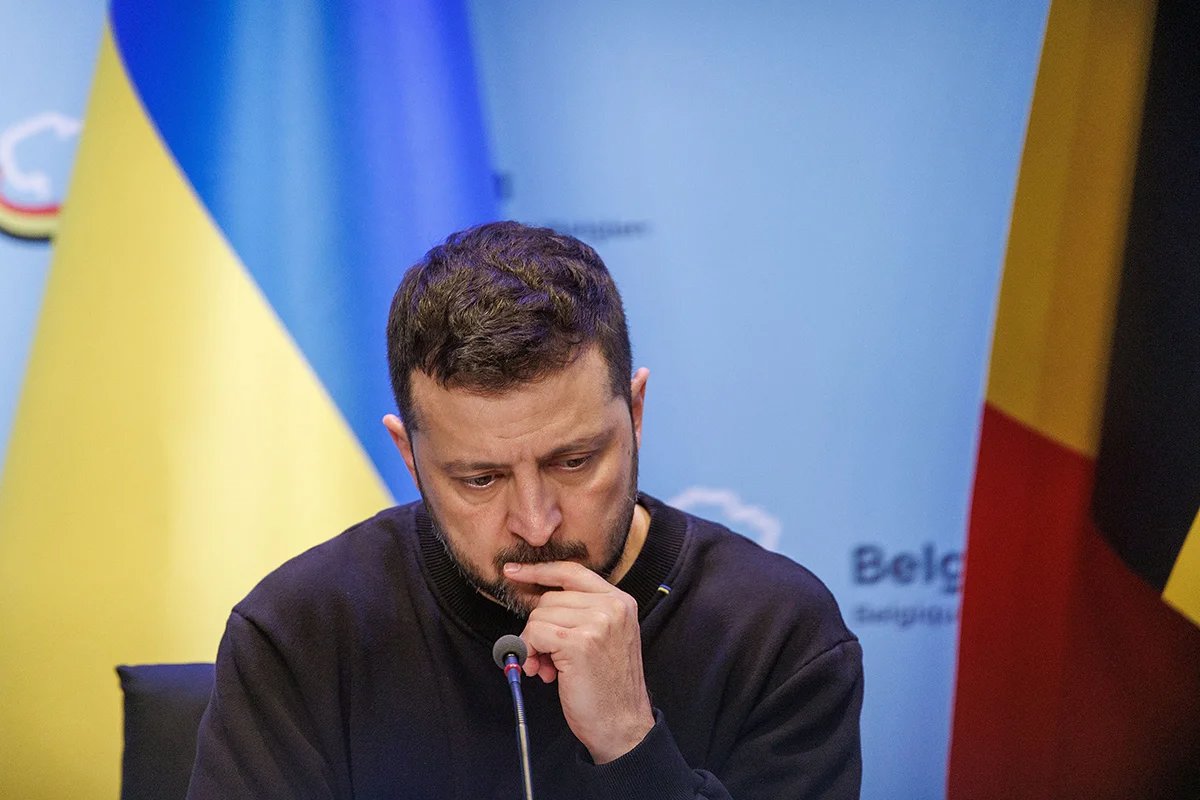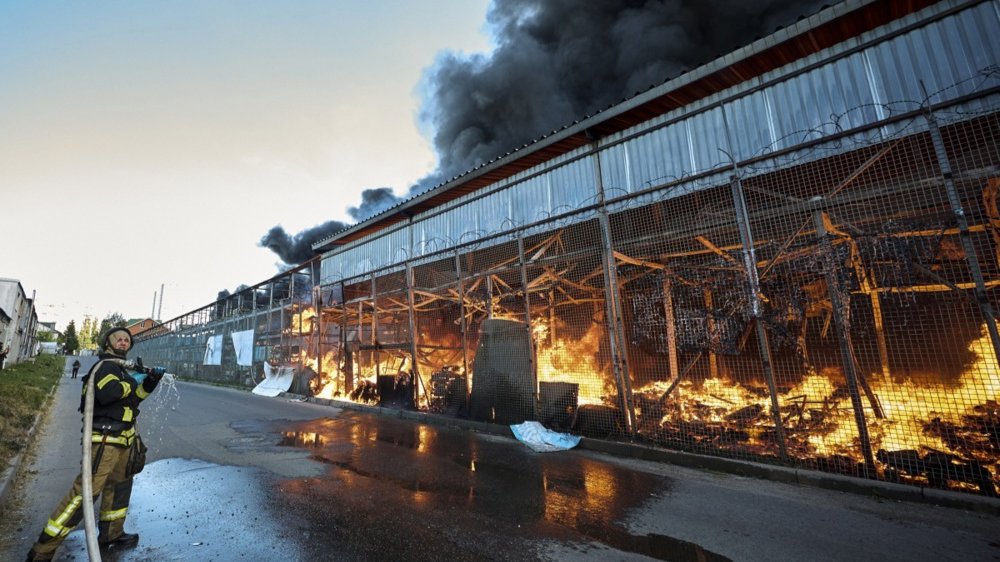
Leonid Gozman
Russian opposition politician
It is the third year of war, and Russia is bombing Kharkiv.
We often try to explain away senseless evil with insanity. He’s a maniac! What did you expect? And the war with Ukraine is so terrible and senseless and is causing such huge damage both to Ukraine and to Russia itself that there is a temptation to try to attribute it all to the insanity of one man, or, at the very least, one man and a group of his closest associates.
There’s no getting away from the insanity. There can be no rational explanation for this behaviour. Even if Russia secures an overwhelming military victory, which is unlikely, the country would still lose in economic and diplomatic terms, not to mention its terrible human losses.
Any normal person might wonder why Russia is destroying a peaceful city, largely inhabited by Russian-speakers, the very people it claims to have launched its war to protect in the first place. So why is it also killing them?
But if it had been consistent insanity and Russia had aimed to achieve senseless, insane goals with equally senseless, insane methods, the war would be over by now and Ukraine would have won. Putin would have lost power, and the country would have seen this as a tragic page in its history, but a page turned, nonetheless. Like the reign of Nicholas I.
But the war drags on, and Putin is still in power.
Russia’s rulers are using perfectly rational methods to attain their goal of destroying and taking over Ukraine, and Kharkiv is a case in point.
Any normal person might wonder why Russia is destroying a peaceful city, largely inhabited by Russian-speakers, the very people it claims to have launched its war to protect in the first place. So why is it also killing them?
Usually it doesn’t say. It claimed that Kharkiv’s Epitsentr hypermarket, which it attacked on 25 May, housed an armament warehouse, though no evidence for that was forthcoming. I don’t know about you, but simply gazing into the honest eyes of Kremlin officials and having faith in their inability to lie doesn’t really work for me. No wonder I’m a foreign agent.

A police officer inspects the damage at the Epitsentr hypermarket in Kharkiv, Ukraine, 26 May 2024. Photo: Sergey Kozlov / EPA-EFE
The commonly accepted explanation for Russian actions in Ukraine, i.e. that this is all just barbarity and an irrational hatred of anything Ukrainian, doesn’t quite work for me either. Yes, the hatred is real, but that’s not what’s guiding the Kremlin’s decisions, which, even if criminal, are the product of thoroughly rational calculations.
After the setbacks of the early days of the war, Putin didn’t lose his cool, or if he did, not for long, and word didn’t get out. Instead, he regrouped, and switched tactics from assault to siege. He built up the army and the military-industrial complex. He cracked down on the most egregious cases of corruption, which he could have overlooked had the war been short and successful, but which were adversely affecting the country’s ability to wage a long campaign. He created channels through which Russia could receive weapons from abroad. But he never gave up on his goal of destroying Ukraine. His fundamental belief in the importance of “reunifying” the two countries means that there’s no limit to the amount of time, people and resources he’s willing to sacrifice to achieve that goal.
As for the West, it is unlikely to give Ukraine what it needs to win — or at least not lose — the next war. It’s not doing that as it is.
If his logic is a long siege of Ukraine, then, oddly, he needs peace. Not actual peace, of course, but at least a truce, a temporary ceasefire that will allow him to rearm and then to go on the offensive again, only from a far stronger position than in February 2022.
His proposals to freeze the conflict along the current lines of contact can only lead to another war in two, three or four years, of course, and Ukraine knows that.
Talk of Ukraine also gearing up for a new war with the help of the West doesn’t feel particularly convincing either. Russia not only has far greater resources than Ukraine, but the Kremlin has a free hand to turn the country into a military camp, ignoring public opinion, an option unavailable to the leadership of democratic Ukraine.
As for the West, it is unlikely to give Ukraine what it needs to win — or at least not lose — the next war. It’s not doing that as it is. What hardware it does currently supply to Kyiv comes laced with so many conditions that its effectiveness is undermined. Had the West provided tanks earlier on in the war, Ukraine might now be in Crimea instead of on the Surovikin Line. Likewise, the West finally provided HIMARS multiple rocket launchers but only once the Russian military had successfully learnt how to defend itself against them.

Ukrainian emergency services at a collapsed residential building in Kharkiv, Ukraine, 31 May 2024. Photo: Sergey Kozlov / EPA-EFE
Bombing Kharkiv is part of Putin’s peace plan. The time is right. The West has elections to be getting on with. It has its own problems and war fatigue. How much longer can it be bogged down in this Slav-on-Slav dispute? Work it out already!
Russian officials have already said that they are, of course, ready for negotiations, but need a viable partner to negotiate with. Putin — a fine one to pronounce on the subject, of course — says that since Zelensky’s term technically expired last month, legitimacy now lies solely with Ukraine’s parliament, the Verkhovna Rada, and its speaker, to whom presidential powers should be transferred.
Viewed in this light, pummelling Kharkiv with missiles in the third year of the war could be seen as a way of provoking discontent among the Ukrainian population, as if trying to make them think that Zelensky needs the war to maintain his power. In so doing, he condemns Ukrainians to death, and forces Russia to attack, in response for Belgorod, if nothing else. Sue for peace and this nightmare will end. And, remember, Kharkiv is Russian really, and Russia can try to divide Ukraine again along ethnic and linguistic grounds too.
It already used that strategy, hoping to destroy morale, by trying to destroy Ukraine’s energy infrastructure the winter before last, working from the Third Reich’s playbook of bombing British cities. It didn’t work and Ukrainians still believed in victory. Russia’s leaders now dare to hope that their faith has diminished.
It’s frightening to behold. I don’t know how this will all end, though I don’t think Putin can come out on top. His ideas are too archaic and harmful even for Russia. They fly in the face of common sense. In years to come, when future generations of Russians go to Kharkiv or Odesa, Mariupol or Kyiv, they will be looked upon as the people who destroyed these cities and killed their people. Those same Russians will, of course, say they were against it all along, but couldn’t do anything. They will say they were on Ukraine’s side, but nobody will believe them.

Ukrainian President Volodymyr Zelensky visits the office of the Belgian Prime Minister Alexander De Croo in Brussels, 28 May 2024. Photo: Olivier Matthys / EPA-EFE
I would love to be proved wrong, but sometimes it seems that Russians have simply got used to the fact that people are being killed in their name every day. There were another six people killed in Kharkiv on Friday. It’s now so common, so par for the course, that it’s almost hard to lose sleep over. War deprives people of their humanity, of the ability to empathise. Floods in the southern Russian town of Krymsk once unleashed a huge wave of solidarity and support and an inflow of volunteers. That was in 2012, two years before the annexation of Crimea, and long before so-called “traditional values” had seized hold of the country. By contrast, the floods that hit the city of Orsk in April were just TV news.
Views expressed in opinion pieces do not necessarily reflect the position of Novaya Gazeta Europe.

